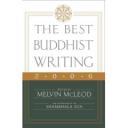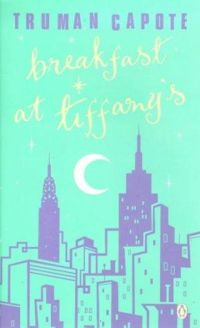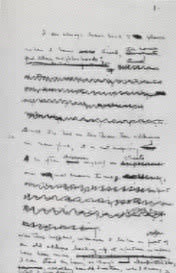Gather around, ladies and gentlemen, and a rum droll, please: here comes the attraction for which you have all been waiting so patiently. Today, I shall begin to talk about the pitch itself, the full 2-minute marketing statement a writer is expected to give in a formal pitch meeting with an agent or editor.
Exciting, isn’t it?
True to form in this series, I’m going to begin today not by telling you immediately how to do a pitch right, but by pointing out what the vast majority of 2-minute pitchers do wrong: as with the keynote and the elevator speech, most pitchers make the mistake of trying to turn the pitch proper into a summary of the book’s plot.
A tough job, for a book whose plot’s complexity is much beyond the Dr. Seuss level, as any experienced pitcher can tell you.
Rightly understood, though, the 2-minute pitch is substantially more intriguing than a mere summary: an opportunity to introduce the premise, the protagonist, and the central conflicts in language and imagery that convinces the hearer that not only is this a compelling and unusual story, but that you are a gifted storyteller.
Doesn’t that sound like a lot more fun than trying to cram 400 pages of plot into seven or eight breaths’ worth of babbling?
I’m going to assume that giant gasp I just heard was the prelude to a yes. Let’s get to work.
While your elevator speech is the verbal equivalent of the introduce-the-premise paragraph in your query letter (a good secondary use for an elevator speech, as I mentioned a few days back), the pitch itself is — or can be — a snapshot of the feel, the language, and the texture of the book.
Rather than talking about the book, the 2-minute pitch is your opportunity to give the agent or editor a sense of what it would be like to READ it. To borrow from that most useful piece of nearly universal writing advice, this is the time to show, not tell.
Yes, your time is short, but you’re going to want to include a few memorable details to make your pitch stand out from the crowd.
Do I hear some incredulous snorts out there? “Details in a 2-minute speech?” the scoffers say. “Yeah, right. Why not tell me to tap-dance, wave sparklers, and paint an oil painting at the same time? In two minutes, I’ll barely have time to brush the edges of my plot with generalities!”
That’s an understandable response, but actually, cramming a pitch with generalities is a rather poor strategy.
Why, you ask? Because the straightforward “This happens, then that happens, then that occurs…” method tends not to be very memorable, especially within the context of a day or two’s worth of pitches that are pretty much all going to be told chronologically.
Strong imagery, on the other hand, sensual details, unusual plot twists — these jump out at the pitch-hearer, screaming, “Hey, you — pay attention to me!”
To understand why vivid, story-like pitches tend to be effective, come with me now into a garden-variety conference pitch appointment room. For the benefit of those of you who have never experienced one first-hand, let this serve as a warning: if you were expecting a quiet, intimate, church-like atmosphere, you’re bound to be surprised.
If not actually stunned.
In the first place, pitch appointments are notorious for being both tightly booked and running long, more and more so as the day goes on. But while it’s not at all uncommon for an appointment booked for 4 PM not to commence until 5:23, obviously, a pitcher cannot afford to show up late, lest jos agent be the one who zips through appointments like Speedy Gonzales.
The result: the writer usually ends up waiting, gnawing her nails like a rabbit on speed, in a crowded hallway filled with similarly stressed people. Not typically an environment particularly conducive to either relaxation or concentration, both of which are desirable to attain just before entering a pitching situation.
Eventually, the writer will be led to a tiny cubicle, or perhaps a table in the middle of a room, where s/he is expected to sit across a perhaps foot-and-a-half table’s width away from a real, live agent who in all probability has drunk FAR more coffee that day than the human system should be able to stand. At a big conference, other pitchers may be close enough for our hero/ine to reach out and touch; one may need to speak in a near-shout to be audible; indeed, at some conferences, the pitchers simply move one seat to the right (or left, depending upon how the room is set up) to pitch to the next agent or editor.
Rather like the Mad Hatter’s tea party.
In this relaxing environment, the writer introduces him or herself to the agent(if s/he remembers to, that is), and then spends approximately two minutes talking about the book. Then — brace yourself for this — the agent responds to what the writer has said.
Possibly even while the writer was saying it. Often, this entails asking a few follow-up questions; at this point, a writer may feel free to ask questions about the agency or the market for your type of book as well. But sometimes — I’m not going to lie to you — the first response is to say that she doesn’t handle that type of book, or that kind of story isn’t selling well right now, or any of a million other reasons that she isn’t going to ask to see pages.
Either way, at some point in the meeting, the agent is going to tell the writer whether the book sounds like it would interest her as a business proposition.
She’s NOT saying whether she liked it, mind you — whether she thinks she can SELL it. You will be a much, much happier pitcher if you cling to that particular distinction like an unusually thirsty leech.
When an agent or editor says, “Well, that’s not for me,” it is NOT always because the story is a bad one, or the pitch was incoherent (although pitch-hearers routinely hear both): it is very frequently because they don’t handle that type of book, or a similar book just bombed, or someone who can’t stand family sagas has just been promoted to publisher, or…
Getting the picture? Rejection is very, very seldom personal — at least from the point of view of the rejection-bestower.
Two things that will NOT happen under any circumstances during your pitch meeting, no matter how good your pitch is (or even your platform): the agent’s signing you on the spot, without reading your work, or an editor’s saying, “I will buy this book,” just on the strength of the pitch. If you walk into your pitch meeting expecting either of these outcomes — and scores of writers do — even a positive response is going to feel like a disappointment.
Let me repeat that, because it’s vital to your happiness: contrary to common writerly fantasy, no reputable agent will offer representation on a pitch alone. Nothing can be settled until she’s had a chance to see your writing, period. And no viable promise exists between a pitcher and an agent or editor until a contract is actually signed documenting it.
Don’t feel bad, even for a nanosecond, if you have ever thought otherwise: the implied promise of instant success is the underlying logical fallacy of the verbal pitch. There are plenty of good writers who don’t describe their work well aloud, and even more who can speak well but do not write well.
The practice of verbal pitching is undermined by these twin facts — and yet conference after conference, year after year, aspiring writers are lead to believe that they will be discovered, signed by an agent, and lead off to publication fame and fortune after a simple spoken description of their books.
It just doesn’t work that way. The purpose of the pitch is NOT to induce a decision on the spot on the strength of the premise alone, but to get the agent to ask you to send pages so she can see what a good writer you are.
Again, period.
Anything more, from an interesting conversation to praise for your premise, is icing on the cake: nice to be offered, of course, but not essential to provide a satisfying dessert to the pitching meal.
So once again, I beg you, don’t set yourself up to be shattered: keep your expectations realistic. Professionally, what you really want to get out of this meeting is the cake, not the frosting.
Here is a realistic best-case scenario: if the agent is interested by your pitch, she will hand you her business card and ask you to send some portion of the manuscript — usually, the first chapter, the first 50 pages, or for NF, the book proposal. If she’s very, very enthused, she may ask you to mail the whole thing.
MAIL is the operative term here. A request to see pages should NEVER be construed as an invitation to HAND her the whole thing on the spot.
Seriously. Not even if you happen to have a complete copy in the backpack at your feet.
Why? Well, manuscripts are heavy; agents almost universally prefer to have them mailed or e-mailed) rather than to carry them onto a plane. (If you think that your tome will not make a significant difference to the weight of a carry-on bag, try carrying a ream of paper in your shoulder bag for a few hours.)
Yes, I know: you have probably heard other pitching teachers — ones who got their agents a long time ago, for the most part, or who have not tried to land an agent recently — urge you to lug around a couple of complete copies of your book. This is WILDLY outdated advice, sort of like advising a 16-year-old nervous about taking her driver’s license test to bring along a buggy whip, in case the horse gets restless.
Just say neigh.
At most, the agent may ask on the spot if you have a writing sample with you, but trust me, she will have a few pages in mind, not 300. (If you’d like to be prepared for this eventuality, the first five pages of a book is a fairly standard writing sample. You could also use the first few pages of a favorite scene.)
In the extremely unlikely event that the agent asks for more right away, murmur a few well-chosen words about how flattered you are by her interest, and offer to pop anything she wants into the mail as soon as it’s feasible.
Regardless of the outcome, remember to thank the agent or editor for his or her time. Politeness always counts in this industry, so do be nice, even if it turns out that the agent simply doesn’t represent your kind of book. (Trust me — if this is the case, the agent will tell you so right away.)
If this happens, express regret BRIEFLY — and ask for recommendations for other agents to approach with your work. (For more tips on handling a mismatched meeting, please see my post on the subject earlier in this series.)
Is your mind reeling, trying to picture this situation in full and vivid detail? Good; that means you’re grasping its complexity.
Those two minutes at the beginning of this process, the part when you are describing your book, of course, are when you give the pitch proper. See why it’s so important to make your pitch a good yarn?
No? Was there so much going on my account above that you forgot to look for a moral hidden in the midst of that long description?
Excellent, if so — because that IS the moral: there’s going to be so much going on during your pitch appointment that it’s going to be darned difficult to make even the most elegant story sound fresh and pithy.
Especially if you find yourself, as so many pitchers do, having a meeting under ear-splitting conditions. Remember, a high probability that you — and the agent sitting across the table from you — will be able to hear the other pitches and conversations. It’s easy for a hearer to get distracted, especially after pitch fatigue — the inevitable numbing effect on the mind of hearing many pitches over a short period of time — has started to set in.
Heck, you may find it hard to concentrate on your storyline — and you won’t even be the one who has already heard fifty pitches that day. Counterintuitive as it may seem, buttonholing an agent at a crowded luncheon or after a well-attended seminar for a hallway pitch is often a QUIETER option than giving a 2-minute pitch during a scheduled appointment.
No, conference organizers are not typically trying to weed out the shy, the agoraphobic, and the noise-sensitive — although that is often the effect of a well-stocked pitching room. It’s just that space is often at a premium at a literary conference — and many conference centers have really lousy acoustics.
Or really good acoustics, depending upon how badly you want to hear the pitcher 20 feet away from you describe his thriller.
So your goal is not merely to make the case that your book is a good one — it is to tell a story so original, in such interesting language, and with such great imagery that it will seem fresh in a pitching environment. (Equally true for fiction and nonfiction, by the way.)
In a frequently chaotic-feeling pitching situation, including vivid, surprising details is the best way I know for a good storyteller to make an exhausted agent sit up and say, “Wait a minute — I’ve never heard a tale like THAT before!”
Does this advice seem just a TOUCH familiar? It should — it’s that old saw show, don’t tell, transplanted off the page and into the pitching environment. The essence of good storytelling, after all, is evocative specifics, not one-size-fits-all generalities.
Over the next few days, I am going to give you a template for presenting your story — fictional or not — in a vivid, exciting, memorable manner. I know that this prospect is daunting, but believe me, you’re gaining the skills to pull this off beautifully.
Trust me on this one. Keep up the good work!


























